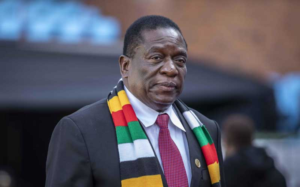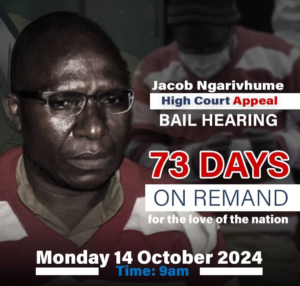CONSTITUTIONAL CONTROVERSY: MNANGAGWA’S LATEST APPOINTMENT SPARKS LEGAL BACKLASH

In a move that has ignited a fierce legal debate, President Emmerson Mnangagwa’s recent appointment of Deputy Prosecutor-General Michael Reza as the new chairperson of the Zimbabwe Anti-Corruption Commission (Zacc) has been flagged by legal experts as unconstitutional. This decision comes on the heels of Reza’s replacement of Justice Loice Matanda-Moyo, who has assumed the role of Prosecutor-General, sparking concerns over the adherence to constitutional mandates in the nation’s governance.
At the heart of the controversy is the claim that Reza’s appointment does not conform to the stringent experience requirements outlined in the Zimbabwean Constitution. According to Subsection 1 (a) of section 254, any commissioner, particularly one hailing from a legal background, is mandated to possess a minimum of seven years of legal practice experience, or have qualifications rendering them eligible for appointment as a judge, or even having served as a judge in the High Court or Supreme Court.
Contrary to these stipulations, Reza, who registered with the Law Society of Zimbabwe to practice law as recently as 2020 or 2021, falls short of the required experience threshold. With only three to four years under his belt, his eligibility to not only serve as a commissioner but also chair the commission is under scrutiny. Despite holding commendable academic qualifications, with a Bachelor of Laws (LLB) degree from the University of South Africa and a Master of Laws (LLM) from Midlands State University, the constitutional mandate of seven years’ legal practice remains unmet.
The controversy doesn’t end there. With the exit of Matanda-Moyo and Commissioner Jessie Majome, the latter now appointed as chairperson of the Zimbabwe Human Rights Commission, the commission finds itself devoid of any member meeting the constitutionally required legal practice experience. This gap has raised questions about the commission’s ability to function within the legal parameters set forth by the constitution.
Some of Reza’s proponents argue that his extensive experience in crime investigation, spanning over a decade, might offer an alternative path to his qualification. However, critics counter that, considering his primary profession in law, he remains unqualified for the position due to the specific legal experience shortfall.
This appointment is the latest in a series of actions by President Mnangagwa that have been challenged for constitutional validity. Past instances include the appointment of more unelected ministers to his cabinet than the constitution permits, decisions that he later had to reverse amid legal and public backlash.
Adding to the complexity is Reza’s contentious reputation, notably his approach to detaining civil society and opposition activists through the bail process, and his involvement in pushing for their incarceration. These actions have compounded concerns over his suitability for a role fundamentally aimed at combating corruption.
The legal fraternity and analysts are calling on President Mnangagwa to reassess this appointment, suggesting that adherence to constitutional mandates is paramount for the integrity of the nation’s governance and its fight against corruption. With Zimbabwe at a critical juncture in its legal and political evolution, the quality of advice and attention to constitutional detail surrounding the President is under the microscope, highlighting the need for transparency, legality, and due diligence in public office appointments.



